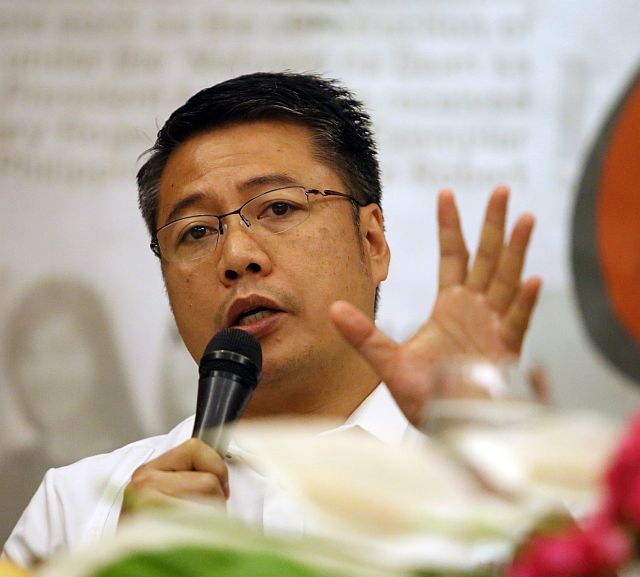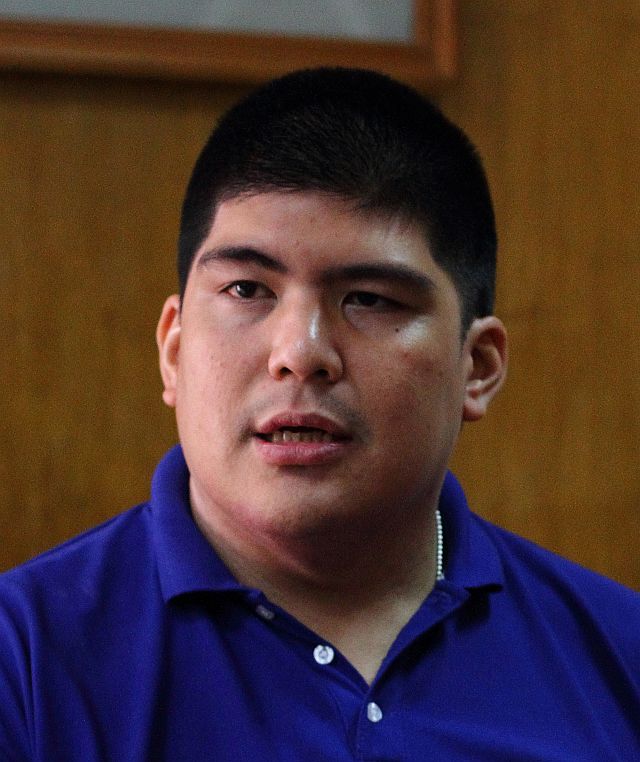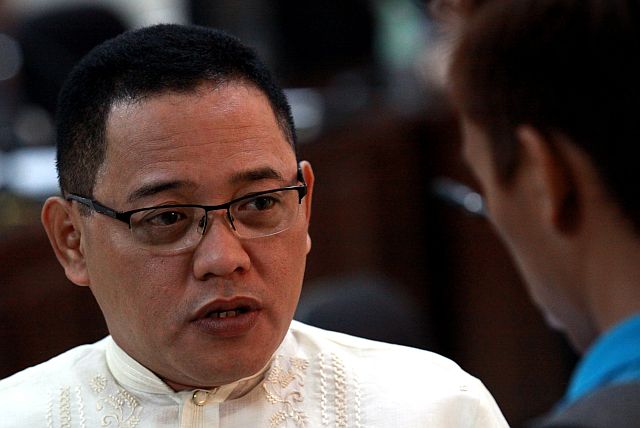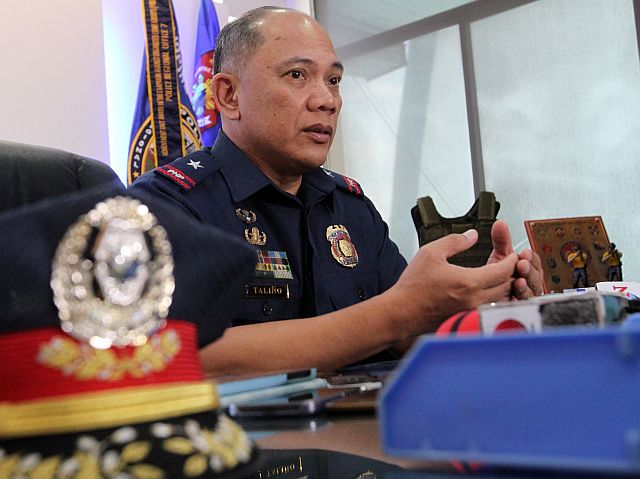PDEA: HIGH-LEVEL TARGETS FIRST

RUIZ
The Philippine Drug Enforcement Agency in Central Visayas (PDEA-7) is ready to take on the drug war that was let go by the Philippine National Police (PNP) but admitted it only has enough manpower to handle “high-value targets.”
“Our manpower is only for high-value targets. We don’t have enough men to go after the street peddlers,” PDEA-7 director Yogi Filemon Ruiz said yesterday.
However, he said, they are willing to lead the country’s illegal drugs campaign despite the lack of manpower.
“I find this very challenging. The PDEA was caught off guard, but orders are orders and we must follow them,” he told reporters after attending the command conference with police officials at PRO-7 yesterday.
Ruiz said PDEA has always been the lead anti-drug law enforcement agency responsible for preventing, investigating and combating any dangerous drugs in the country since 2002.
But when the police came in to assist PDEA, he said they were happy since there would be more units that will go after drug syndicates.
“The police has really contributed many things in our campaign against illegal drugs. PRO-7, in fact, is very active in our campaign,” he said.
Some Cebu officials, including Mandaue City Mayor Gabriel Luis Quisumbing and Cebu Provincial Anti-Drug Abuse Office (Cpadao) chief Ivy Durano-Meca, welcomed the move, saying it was totally within the prerogative of the PNP to suspend its crackdown against illegal drugs in order to first cleanse its ranks of scalawags.
Quisumbing believed that an overhaul of the police organization will lead to a more effective campaign against illegal drugs, granting that all the bad apples in the service have been fired at end of the internal cleansing.
“Knowing how passionate and committed our president is, (I know) we will be able to have an even better anti-drug program (after the cleansing),” Quisumbing told Cebu Daily News by phone yesterday.
Meca, as well as Quisumbing, said the police could instead focus on solving other crimes other than those related to illegal drugs.
But Cebu City Mayor Tomas Osmeña said the order of President Rodrigo Duterte to stop anti-illegal drug operations in all police units nationwide may not work well if it will be prolonged.

Mandaue City mayor Gabriel Luis Quisumbing
“I have not gotten any raw information of policemen involved in kidnapping or something like that. Getting money from drugs, yes. There are some. But kidnapping, no,” he said during a press conference yesterday.
Earlier, the President ordered the internal “cleansing” of the PNP after top police officers were linked to the kidnapping and murder of a South Korean businessman in the guise of an anti-drug operation in October last year.
Osmeña also disagreed with the plan of PDEA to ask the Armed Forces of the Philippines to assist them in the war against drugs.
Ruiz yesterday said that if the PNP will not revive anti-narcotics operations, he will have to ask the AFP to provide them with additional manpower.
“You cannot expect the military to take over the drug operation. It is better than nothing but it is not enough,” he said.
Cebu City Councilor and deputy mayor on police matters Dave Tumulak said he plans to ask PNP chief Director General Ronald dela Rosa to reconsider because many barangay officials feared that without the police, drug pushers that have given up the trade due to the relentless Operation Tokhang will again operate in their barangays.
Lt. Col. Luzmindo Mamauag Jr., spokesperson of the AFP Central Command, expressed willingness to help PDEA in fighting the menace of illegal drugs.
“In behalf of Centcom’s commander, we fully supports the PDEA in the implementation of the government’s campaign against illegal drugs and apprehension of drug personalities. PDEA can always coordinate with our line unit, Task Force Cebu, for this purpose,” he said in a text message to CDN.
Cooperate with PDEA
Chief Supt. Camilo Pancratius Cascolan, the PNP director for operations, was in Cebu yesterday to meet with the police officials in Central Visayas to relay Dela Rosa’s order for all policemen to get their hands off any anti-drug operation, including the service of arrest or search warrants for drug suspects.
A policeman who personally witnesses an ongoing drug sale or see a person engaged in illegal drug use may arrest the suspect but has to immediately turn over the offender to PDEA.
“The full trust and confidence of the President is now with PDEA, but it does not mean that the President doesn’t trust the police anymore. See what a rotten egg can do to the whole basket of eggs,” Cascolan said, alluding to rogue cops who were accused of kidnapping and killing a Korean businessman inside Camp Crame last October.
“For now, stop conducting anti-drugs operations. Wala na yong pagnakita mo ang kalaban mo ay tataniman mo (Let’s put an end to a practice wherein when you see your enemy, you will plant something illegal for him or her to be arrested),” he added.
Cascolan was also clear about PDEA’s rule in the drug war.

Councilor Dave Tumulak. (CDN PHOTO/JUNJIE MENDOZA)
“Never withhold any information from PDEA. We are one in this endeavor. We have to move forward,” he told police officials gathered at the PRO-7 quadrangle.
“On the part of the police, there are lots of things to do. Let’s attend to the seven focused crimes plus rape and our internal cleansing. Also, let’s help PDEA by providing them with the information they need,” he added.
As the PNP focuses on internal cleansing, at least nine policemen formerly assigned in Cebu were charged before the Office of the Ombudsman for allegedly not declaring all their properties in their Statements of Assets, Liabilities, and Networth (SALN).
The respondents, with ranks ranging from police officer 2 to superintendent, are facing charges before the Military and Other Law Enforcement Offices (Moleo) for violating Republic Act 3019 or the Anti-graft and Corrupt Practices Act in relation to Republic Act 6713 or the Code of Conduct and Ethical Standards for Public Officials and Employees.
Another policeman was charged before the Regional Investigation and Detection and Management Bureau (RIDMB) for his alleged involvement in illegal drugs, said Senior Supt. Jonas Ejoc, chief of the Regional Internal Affairs Service (RIAS).
He, however, declined to name the police officers pending the resolution of the charges against them.
“We found out that the properties of these policemen are not proportionate to that of their salaries. A number of their vehicles were not even stated in their SALN, so RIAS has to file a case against them,” said Ejoc in an interview yesterday.
So far, only 10 cases were elevated either to the anti-graft office or the RIDMB. Four cases were filed on Monday while the other six were completed two weeks ago.
“Now it’s up to the Ombudsman to look into the matter,” Ejoc said.
Aside from conducting a lifestyle investigation on policemen, RIAS also filed charges against an official of the Tagbilaran City police for not submitting “incidents reports and after-operation reports” which Ejoc said is a must in every operation.
An incident report, he said, must be submitted by the policeman who discharged a firearm or shot dead a drug suspect in an encounter. The after-operation report is submitted by the chief of police after an operation.
“It seemed that this instruction fell on deaf ears. I believe it’s time to have a sample for others not to repeat the same mistake,” Ejoc said.
Transition
Chief Supt. Noli Taliño, director of the Police Regional Office in Central Visayas (PRO-7), said he already disbanded all the anti-illegal drugs special operations teams in the region and reassigned their members to the intelligence’s division and other units.
“It’s just unfortunate that one bad egg in the PNP ruined the whole institution,” he said.
He said PRO-7 also forwarded yesterday morning the list of all the drug personalities to PDEA-7.

TALIÑO
“Somehow, there’s a transfer of responsibility. These are among the changes, but we will fully support PDEA. Members of drug groups could not be complacent because we’re still monitoring them,” he said.
Taliño said the police will now focus on the PNP’s seven focused crimes: homicide, murder, theft, robbery, physical injuries and carnapping.
On top of these crimes which the police will also look into rape cases plus the special task of cleaning the police force.
“We were given specific orders to clean our own ranks so that when the time comes that we will resume our anti-drugs operations, all of us are worthy to be part of it,” Taliño explained.
At least 157 drug suspects were killed in different operations in Central Visayas, while 352 others were gunned down by unknown assailants since President Duterte unleased the government’s relentless campaign against illegal drugs last July 1.
Policemen in the region convinced 106,760 drug users and pushers to surrender, and arrested 5,257 drug suspects.
Disclaimer: The comments uploaded on this site do not necessarily represent or reflect the views of management and owner of Cebudailynews. We reserve the right to exclude comments that we deem to be inconsistent with our editorial standards.
